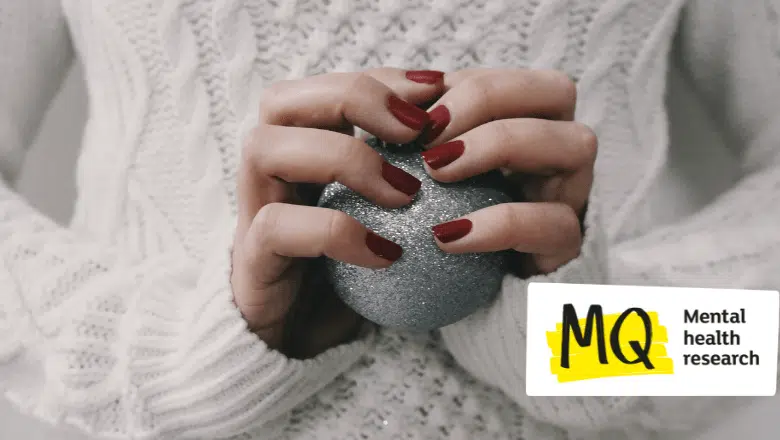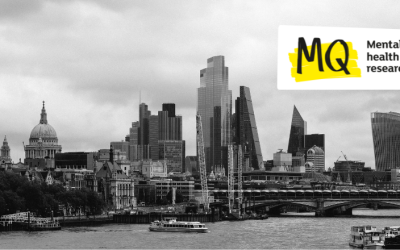Dark nights, bright lights, and Christmas adverts on the telly, the festive season has begun. Amidst the wishes of peace and good will there are many challenges to our mental health.
It’s not uncommon for mental illnesses to be exacerbated at this time of year. In fact, a study in 2021-22 found that anxiety and depression rose sharply over December in 2021, and life satisfaction dropped between November and December that year reaching the lowest levels since March during lockdowns.
Historically, there appears to be a trend in lower mood and alcohol-related fatalities over the holidays, yet a decrease in emergency room admittances for those with mental illness and a decrease in inpatients too.
There is also a decrease in recorded self harm admittances and suicide attempts or completions, yet an increase the following month. This may suggest that December is a month when people feel less able to turn to emergency services and inpatients either discharge themselves or are discharged. It may also suggest that the impacts of difficulties experienced during December, or indeed any time, has repercussions later, further research is needed to fully answer these questions.
If you struggle with your mental health at this time of year, you are not alone and help is available.
You can also access services in your area and immediate conversation with someone by phone or text message in the UK via the Hub of Hope.
Mental illnesses commonly exacerbated
Depression
Depression is one of the most commonly diagnosed mental illnesses. There are lots of reasons why people develop depression including biology, psychology and social factors. But rumination is known to contribute to depression as a mental illness.
Rumination means getting lost in our thoughts, thinking again and again about something. People with depression might often think about what they could’ve done differently in the past, focusing on failures wishing things had been different, reanalysing what happened and what they could’ve done differently.
“We know that rumination is a very important cognitive characteristic of people with depression. Rumination is {also} a predictor. People who engage in rumination are more likely to become depressed, and stay depressed for longer.” Professor Michelle Moulds, Kings College London
The holidays often encourage rumination as we recall Christmases of the past at the same time as we look back over the year. We might consider achievements, goals or perceived life progression. During a difficult cost of living crisis, difficult times globally, and anger and dismay at politics, it might feel especially difficult to resist getting lost in our own thoughts and ending up feeling disempowered and unmotivated.
During the busy festive period it might also be more difficult to find balance between being social, discerning about who, how and when to socialise while also taking time to rest, pause and process. Social connection can be important in preventing and alleviating depression. But ensuring there’s rest and recovery time is also important as fatigue can affect our ability to think clearly.
How to help yourself? Take time to rest. Schedule time to sleep with healthy bedtime routines. Schedule time to talk with trusted people about your rumination, including helplines or charities.
Where to turn for help? Depression UK are a self-help charity based in the UK. In addition, Samaritans provides confidential non-judgemental emotional support, 24 hours a day. The Samaritans can be called on 116 123. You can also contact your local Samaritans branch if you'd like to talk to someone in your region.
Anxiety and related disorders
Anxiety disorder is a very common mental health condition and still one that can feel intensely overwhelming. There are other conditions related to anxiety such as Obsessive Compulsive Disorder and Body Dysmorphic Disorder.
There is strong research being done into anxiety and the contributing factors, including looking into hormones and anxiety, web-based anxiety treatments or improving the use of Cognitive Behavioural Therapy. Like depression, rumination is known to be a factor in anxiety. Women are also twice as likely to struggle with anxiety than men. And we do live in anxious times right now.
The Holidays can be particularly anxiety-provoking with social pressures, busy diaries, parties and social gatherings, making small talk, financial costs of the season particularly during a cost of living crisis. It can also be a time when things that can help anxiety are also available. It’s useful to know if you’re dealing with anxiety or anxiety disorder and this MQ article can help clarify with which you might be dealing.
How to help yourself? Frequently, self-help can be explored to aid anxiety. Many people use a variety of self help ideas including exercise. So prioritise time out for self-care. Whether meditation works for you or something else like knitting, running or reading, taking time to yourself can help. Journaling is known to have a positive effect on mental health too.
Where to turn for help? If you’re in the UK, Anxiety UK are a charity with helplines and information about anxiety.
Eating Disorders
Eating disorders are complex and a very many different types of eating disorder exist anorexia nervosa, bulimia, binge eating disorder and many more. Around 725,000 people in the UK are affected by eating disorders each year. People with eating disorders are twice as likely to develop multiple health problems.
The excesses of the festive season are clearly linked to food. The abundance of generosity might seem joyful to some, but to those with eating disorders it can be a painful, isolating minefield.
Food can be a difficult substance for many, as well as body image and low self-esteem. Often this can be integrated into family dynamics, which during the holiday season might be hard to avoid or at least to avoid memories. Family rigidity is also linked to eating disorders.
This time of year also may cause disruption to routine, pressures to eat more or to eat at different times, pressures to eat traditional foods rather than exercising autonomy known to be linked with positive improvements for those with eating disorders. Making our own choices is helpful to mental wellness, and diminished autonomy can exacerbate mental ill health. An increase in the number of meals out with colleagues or at parties might also be challenging to recovery. There can often be, at times of tradition, pressure to conform and emotional consequences if not.
The good news is self-driven care can be effective in improving eating disorders and it is possible with support to manage during difficult times like the holiday season.
How to help yourself? If you have someone helping you like a therapist or nutritionist, schedule time to go through your concerns around food. If you find meal plans help you, take time to consider them. Let your friends and family know you might need extra help and support. Give them clear boundaries around food ahead of time. MQ are providing dedicated content around eating disorders in the run up to Christmas.
Where to turn for help? In the UK, Beat are the leading charity in eating disorders with helplines and information about all forms of eating disorders.
Other problems
Stress - While not a mental illness, but often the cause and the symptom of mental illness, stress can easily increase during the holidays.
Read more about stress in our article here and more about stress management here. Find out 7 ways to reduce stress here. And for ideas to help manage stress see how creativity can help.
Loneliness – again, not a mental illness but a common factor in contributing and exacerbating mental illness. Not everyone has family or family they wish to see, for the good of their mental well-being, and some people might feel overlooked if they do not celebrate the same holiday as others.
The importance of addressing loneliness in the elderly is still clear, but with the increase in people working from home and cost of living crisis impacting many socialising plans, isolation may not just be affecting one age group. Childhood loneliness is linked to mental illness, in fact.
If you’d like to help, reaching out to those who might feel isolated is an excellent idea particularly at this time of year. Volunteering for a charity during the holidays is also an excellent solution if you’re concerned about your loneliness and that of others.
Virtual Christmas gatherings are also a trend that has caught on in recent years to alleviate loneliness online like the Join In campaign with Sarah Millican.
Alcohol or substance abuse - not a mental illness in diagnostic criteria but often the cause of and the symptom of mental health conditions. Not every festivity emphasises alcohol at this time of year but many do. Advertising also adds to the pressure to drink to excess. Much like with eating disorders, any form of addiction is difficult but not impossible to manage during the holiday season particularly with support and preparation. If you are concerned about your alcohol use or somebody else’s, contact Alcohol Change for further information in the UK.
Grief – again, not a mental illness but often the cause or the symptom of mental health conditions. The loss of a loved one is rarely an easy experience. During the holiday period, remembering them and previous holidays spent together can bring up a lot of difficult feelings that are hard to allow or accept. You might feel guilt for enjoying yourself, anger for the injustice, sadness at the loss, something else or nothing at all. Whatever you feel or don’t feel, allowing yourself to feel it is useful.
Grief might also not only be experienced with loss of life, but a traumatic loss of life circumstances such as an established relationship or career or perhaps your own health. There is help and further available information on how to cope with grief.
Read more about the holidays and mental health here.
If you or someone you know might be struggling during the festive period, help is available.



